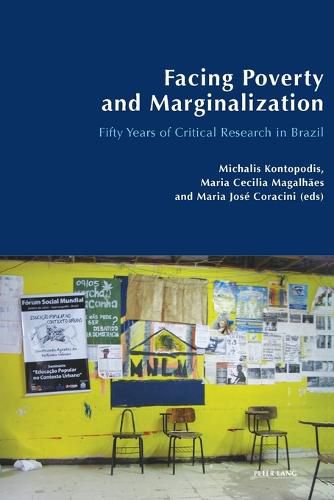Readings Newsletter
Become a Readings Member to make your shopping experience even easier.
Sign in or sign up for free!
You’re not far away from qualifying for FREE standard shipping within Australia
You’ve qualified for FREE standard shipping within Australia
The cart is loading…






This title is printed to order. This book may have been self-published. If so, we cannot guarantee the quality of the content. In the main most books will have gone through the editing process however some may not. We therefore suggest that you be aware of this before ordering this book. If in doubt check either the author or publisher’s details as we are unable to accept any returns unless they are faulty. Please contact us if you have any questions.
A long history of poverty, discrimination, colonialism and struggle for social justice has provided, over the last fifty years, the context for the development of a vast amount of critical scholarship targeting marginalization in Brazil: Freireian pedagogics, theology of liberation, critical sociology, anthropology and ethnomathematics, critical social psychology and discourse analysis. Most of this scholarship has unfortunately been accessible only to the Portuguese-speaking readership. This volume presents, for the first time to an international audience, the novel understandings of critical research that have emerged in this frame. While Brazil is entering a new phase of socio-economic and political turmoil, distinguished representatives of the various critical research traditions from all over Brazil explore the voices and practices of those who are usually hardly heard: the helpless, the mentally ill, the landless, the homeless, the voiceless youth, delinquents, indigenous people, the powerless. The volume proposes original theoretical tools and arguments that can inspire social-scientific discussions on facing poverty and marginalization not only with regard to Brazil, but also other parts of the world. It is the first book of its kind in English and a unique tool for undergraduate and graduate students, researchers and specialists across the social sciences.
$9.00 standard shipping within Australia
FREE standard shipping within Australia for orders over $100.00
Express & International shipping calculated at checkout
This title is printed to order. This book may have been self-published. If so, we cannot guarantee the quality of the content. In the main most books will have gone through the editing process however some may not. We therefore suggest that you be aware of this before ordering this book. If in doubt check either the author or publisher’s details as we are unable to accept any returns unless they are faulty. Please contact us if you have any questions.
A long history of poverty, discrimination, colonialism and struggle for social justice has provided, over the last fifty years, the context for the development of a vast amount of critical scholarship targeting marginalization in Brazil: Freireian pedagogics, theology of liberation, critical sociology, anthropology and ethnomathematics, critical social psychology and discourse analysis. Most of this scholarship has unfortunately been accessible only to the Portuguese-speaking readership. This volume presents, for the first time to an international audience, the novel understandings of critical research that have emerged in this frame. While Brazil is entering a new phase of socio-economic and political turmoil, distinguished representatives of the various critical research traditions from all over Brazil explore the voices and practices of those who are usually hardly heard: the helpless, the mentally ill, the landless, the homeless, the voiceless youth, delinquents, indigenous people, the powerless. The volume proposes original theoretical tools and arguments that can inspire social-scientific discussions on facing poverty and marginalization not only with regard to Brazil, but also other parts of the world. It is the first book of its kind in English and a unique tool for undergraduate and graduate students, researchers and specialists across the social sciences.